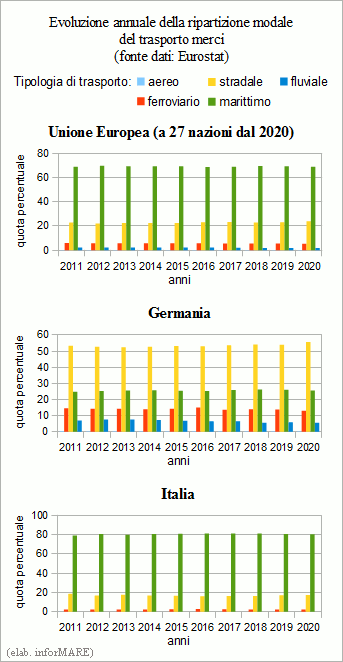
Road freight traffic in Germany will increase by 2051 of +34% and the German federal government plans to develop road infrastructure to cope with this growth in Volumes. This was stated by the Minister of Transport, Volker Wissing, to the German newspaper "Reutlinger General-Anzeiger" explaining that in the past national road infrastructure is have been neglected and there are currently about 144 bottlenecks which prevent the flow of road transport from being fluidified. The Minister stressed that, in view of the increase in the +34% predicted by a recent study, with 5.7 billion tons of goods transported by trucks in 2051 compared to minus 4.4 billions of tons transported in 2019, if roads do not will be extended, which will have enormous consequences for the Germany.
Wissing specified that the transport capacity rail, which currently carries 370 million of tons of goods per year, will not be sufficient for support the expected increase in volumes, also taking into account that for the railway transport is expected a growth of +14% by 2051.
Meanwhile, yesterday in Rome, the German Minister Wissing met with the Vice-President of the Council and Minister for Infrastructure and Transport, Matteo Salvini, agreeing on the need for a close coordination between Rome and Berlin on the double transition green and digital for the transport sector. To follow, Wissing and Salvini met with over fifty representatives of companies and trade associations. Among these the Association Logistics of Sustainable Intermodality (ALIS), with the President Guido Grimaldi who highlighted the presence among the Associates of «true entrepreneurial excellence that operate intensively in Germany and which are world leaders in the transport of trucks, semi-trailers and new cars from the German ports of Hamburg, Bremerhaven, Rostock and Travemunde, also contributing to decongest, through intermodal lines with all countries Scandinavian and Baltics, heavy vehicle traffic from the network road of Northern Europe'. On the occasion of the Grimaldi meeting stressed the opportunity, in order to be able to guarantee increasingly efficient transport, to "also improve rail connections to and from Germany thus reducing even waiting times».
